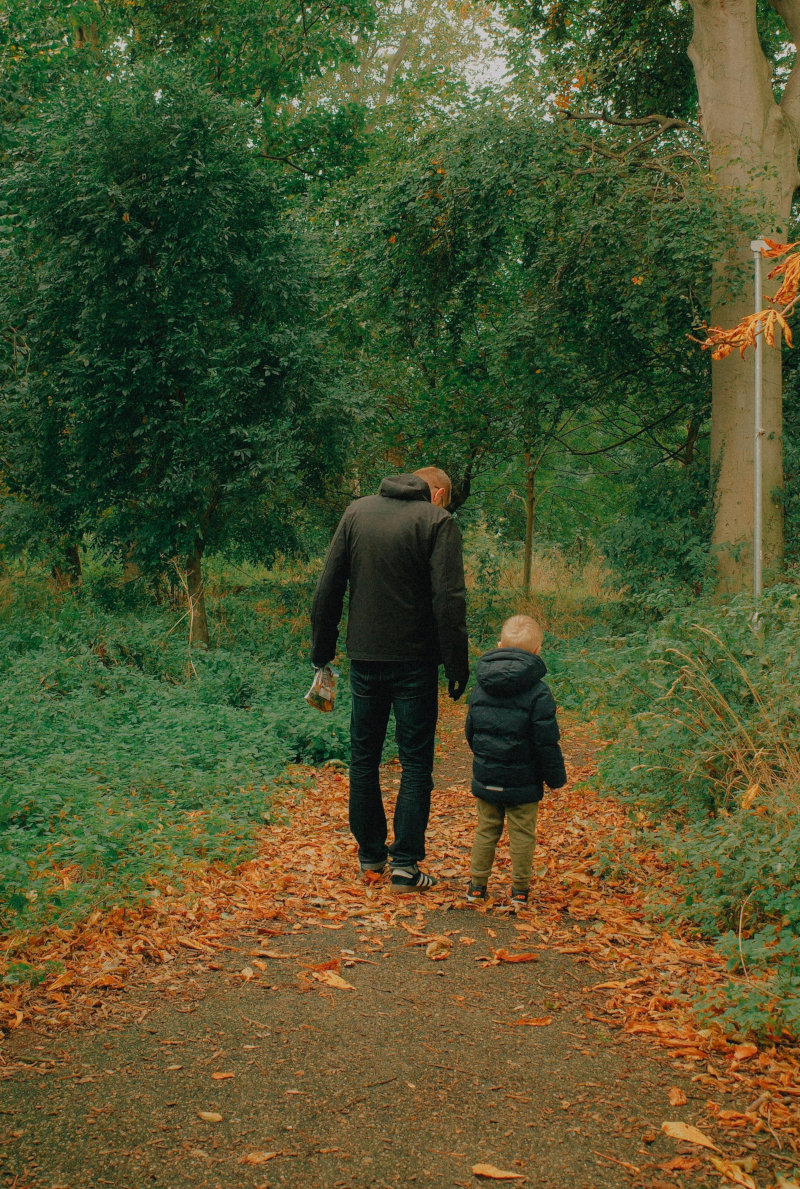Fall is a season of transitions. With a new school year starting, preparation for winter, and the colors transforming outside, the change in the seasons can lead us to experience a range of emotions, from excitement to uncertainty to restlessness. Many of us are also dealing with significant life changes, in the form of grief or loss, a close friend or family member moving away, a new job, a child moving out of the house, a new medical or financial concern, or a relationship breakup or difficulty. When these changes take place, it is easy to feel unsettled and even hopeless as we wrestle with our own identities in the midst of a changing world.
With every change we experience in life, and with every decision we make, there are trade-offs; however, in the busyness, we often don’t make the time to process what we are losing and what we are gaining. If we continue on “cruise control” without taking time to reflect and process the events in our lives, we may not recognize how these changes are affecting us, and in time we may find ourselves overwhelmed and frustrated with our circumstances. However, there are many ways to prepare ourselves to deal with the impacts of change in our lives, enabling us to better adapt to our new circumstances.
1. Acknowledge the Change and Consider its Impacts
First, we must recognize that a change has occurred and that this change is impacting us. To do so, it can be helpful to journal or talk through the change with a trusted support person or in therapy with a professional. Take note of how this change impacts your life by asking questions like: “What have I lost?,” “What aspects of my life have remained the same?,” and “What have I gained through this change?” Someone struggling with grief or loss may also ask, “How does this loss impact my day-to-day life?” or “What thoughts am I having in response to losing my loved one?” Someone starting a new job or moving to a new place may consider, “While I’m excited about this change, what will I miss about my old job, house, community, etc?” or “How does this new job affect how I view my identity?” Changes in life often evoke positive and negative thoughts and emotions about ourselves, our situations in life, our families and communities, and our plans for the future. Slowing down and taking time to think through life’s impacts on one’s thoughts and emotions can provide an opportunity for deeper self-reflection and growth.
2. Remember Who You Are
Second, in the midst of change and all the difficult emotions that come with it, it is essential to become grounded in one’s sense of identity. To do so, it is important to consider where we are finding our value and worth. It is so common to base our identities and value on external, changing sources, like one’s job, family, relationships, or success, and when these facets of life are taken away or go through significant changes, our identity can feel shaken. One important method of finding one’s identity suggested through faith-based counseling is through spiritual disciplines. Isaiah 41:10 says,
“Fear not, for I am with you;
be not dismayed, for I am your God;
I will strengthen you, I will help you,
I will uphold you with my righteous right hand.”
Spiritual disciplines, as well as faith-based counseling, can help one to accept the reality that life brings unexpected challenges, and human beings are not meant to control the outcomes of every situation. Centering oneself on Scripture and prayer or meditation can help one to become more grounded in trust and reliance on God.
3. Accept your Limitations and Release the Need to Control
Third, we must consider what is in our control and what is not. Sometimes, life changes are a direct result of our own decisions. These decisions may include leaving a job, moving to a new home, or changing schools. However, many times, change in life is unpredictable. Unpredictable changes may include an unexpected pregnancy, loss of a loved one, a promotion at work, a new medical concern, a car accident, and many other life events. When transitions take place in life, there are aspects of the change we are able to control, and there are aspects that we are not able to control. For example, a person may decide to quit a job, but he/she cannot ensure that there will be new job openings available. Similarly, a person cannot change his/her new medical diagnosis, but it is within this person’s power to choose to reach out for support and guidance on coping with news they have received. To better adjust to and heal through life changes, we must acknowledge what aspects of the change are within our power to control, and what aspects are outside our reach of control. Making this distinction can help us to reach peace about our life circumstances. As we take positive actions within our reach while acknowledging aspects of the transition that we are not responsible for, we can work toward accepting our finite limitations and letting go of a need to control our circumstances.
4. Rely on Positive Supports and Rhythms
Fourth, another important method for coping with change is to find support in already-established support systems. Who are the people you can rely on? Process life and spend time with those loved ones. What are the routines and rhythms that have remained the same, despite this change? Sometimes, in the middle of change and chaos, having set rhythms and rituals at a specific time of day or day of the week, no matter how small (like morning coffee, going to the gym after work, taking your child to the park on Saturday morning), can be helpful to maintain a sense of stability and continuity.
5. Reframe the Change as an Opportunity for Growth
Lastly, when we experience change, it can be hard to see how such an event could bring a positive outcome for us. In this situation, it can be helpful to reframe stress-inducing life changes as life-giving opportunities for growth. How would you like to grow through this change? What virtues can you pursue as you respond to this transition, whether flexibility, grace, patience, or something else? What do you hope to accomplish as you navigate this new season of life? These are all questions that can be helpful as we navigate the choppy waters of life transitions.
In Conclusion…
Throughout all life transitions, there are likely to be a variety of emotions we experience as we process the trade-offs that come with change. These emotions are normal, and it is important to make time to process how we are thinking and feeling. By considering the impacts of the change, remembering our identity, accepting our limitations and releasing our need for control, relying on positive supports, and reframing the change as an opportunity for growth, we can better adjust to our life transitions and maintain a sense of stability and peace as we grow through the changes that life presents us with.
At times, we may experience more persistent difficult responses to change that could be indicative of a struggle with depression, anxiety, or post-traumatic stress responses. If you find yourself having difficulty adjusting to a significant change in life, don’t hesitate to reach out for professional support.

Lea is passionate about creating a safe space where people feel heard, understood, respected, and supported. She believes that suffering and struggling are part of the human experience. Lea loves to provide an environment where people feel welcomed and received as they discuss difficult experiences openly and explore together how to apply truth to struggles.
Photo by Lisa Fotios







